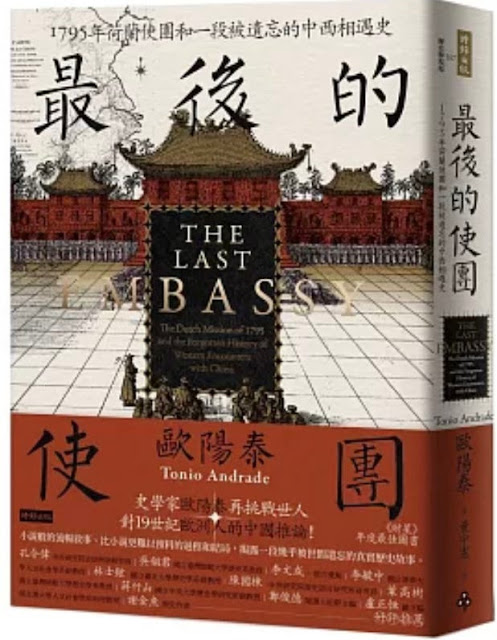有評論說,歐陽泰是當代歷史學界的魔術師。一方面他的史學著作寫得縱橫捭闔、見時代與世界大勢;另一方面卻歷史人物躍然紙上,相隔時空與讀者對望。2024年5月,在推出歐陽泰漢學經典三書之後,時報出版再次推出歐陽泰的歷史著作《最後的使團:1795年荷蘭使團和一段被遺忘的中西相遇史The Last Embassy: The Dutch Mission of1795 and the Forgotten History of Western Encounters with China》。
如今,歐陽泰有許多廣為人知的標籤,漢學家、台灣史學家、世界史學界、東亞歷史學家等,但很少有人知道在Reedcollege讀本科的時候,一開始主修是生物學與神經科學;之後因為對中文感興趣,他開始學習中文。1989年,他去台灣師範大學讀了半年的中文。
1992年,歐陽泰在Reed College畢業後,進入伊利諾伊大學香檳分校University of Illinois讀碩士。在此期間,他閱讀了狄奧多.施篤姆(Therdor Storm)的德文小說《白馬騎士》(Der Schimmelreiter),而受到佛里斯蘭文化(Frisian Culture)吸引,沒原由地沉迷於荷蘭文,並開始學習荷蘭文。
1994年,碩士畢業後,歐陽泰去耶魯大學攻讀歷史學博士。在這裡他遇到兩位老師。一位是帕克(Geoffrey Parker);另一位是史景遷。帕克是一位軍事革命論學者,專門研究現代早期西歐,西班牙和戰爭的歷史。他最著名的書是劍橋大學出版社於1988年首次出版的《軍事革命:軍事創新與西方的興起,1500年—1800年The Military Revolution: Military Innovation and the Rise of the West,1500–1800》;而中國讀者的熟悉的史景遷則擅長書寫歷史人物與個性。在兩位老師的影響和啟發下,歐陽泰開始了自己的學術旅程,選擇中國海洋史作為論文主題,討論荷蘭東印度公司與中國之間的關係,並比較菲律賓跟巴達維亞歷史。。
在自己的學術研究中,歐陽泰提出了「全球微觀史」(micro-global history)的觀點,既從宏觀去詮釋世界歷史發展的大趨勢,也透過歷史角色講述歷史下的時空。「他認為一名歷史學者應該有兩個層面:身為理論的建構者,同時也成為說故事的人。」(盧正恆:《他是「建構理論的人」也是「說故事的人」──歷史學家歐陽泰》)
對於歐陽泰的著作,或許用他自己的話介紹最好:
My first book,How Taiwan Became Chinese(2007), examined how Dutch, Spanish, and Chinese colonization met and competed in the Far East and asked why it was that the Chinese prevailed over the Europeans rather than the other way around, suggesting that political will– that is to say state support for expansion– was a key variable. My second book,Lost Colony(2011), examined the Sino-Dutch War of1661-1668, Europe’s first war with China and the only significant Sino-European conflict until the Opium War of1839–42. It asked whether Europeans had– at this early date– any significant advantages in military and naval technology over China and concluded that they did, although not perhaps in the areas people might have expected. My third book,The Gunpowder Age(2016), looked more deeply into China’s military past, comparing it to that of Europe, and showing that China’s China’s dynamism was deeper, longer lasting, and more quickly recovered than has long been believed. My fourth book, The Last Embassy(2021), examined a little-known but richly documented Dutch embassy to the court of the Qing dynasty’s Qianlong Emperor. I’m currently working on a book about the Dutch East India Company and its interactions with and effects on Asia’s maritime realms.
前三本著作《福爾摩沙如何變成台灣府?》(How Taiwan Became Chinese)、《決戰熱蘭遮》(Lost Colony)和《火藥時代》(The Gunpowder Age),在台灣早已翻譯出版,被稱為「歐陽泰漢學經典三書」,歐陽泰也因為他對台灣早期歷史的書寫而深受台灣人的喜愛。最近,第四本著作《最後的使團》(The Last Embassy)中文版也在台灣出版。為此,波士頓書評特別採訪了歐陽泰教授,採訪通過郵件進行。訪談用英文進行,書評翻譯成中文。

書評: You once joked that when you graduated in2000, because you studied global history(world history), you thought you might only find a teaching position at a community college. Was this because global history was not yet popular in American universities at the time?
你曾開玩笑說,2000年畢業的時候,因為自己學習的是全球史(世界史),認為自己可能只能在社區大學找到教職。這是因為全球史在當時美國大學還不是很流行嗎?
歐陽泰:Yes, at that point, most historians didn’t know what global history was. My graduate course on the topic was one of the first to be offered. Things began changing quickly after around2010. Today, global history is a major subfield within the discipline, and there are scores of books published each year in global history.
歐陽泰:是的,當時大多數歷史學家都不知道什麼是全球史。我研究生時候讀的關於這個主題的課程是最早開設的課程之一。2010年左右,情況開始迅速改變。如今,全球歷史已成為該學科的一個主要分支,每年都會出版數十本全球歷史書籍。
書評: At least among Chinese readers, global history seems to have only become popular in recent years, and people seem to be getting tired of history narrated by country and history dominated by elite politics. Does the popularity of global history represent a change in ideological trends?
至少在中文閱讀內,全球史似乎是近年來才開始流行起來,人們似乎開始厭倦以國別來敘述的歷史和精英政治為主的歷史。全球史的流行,是不是背後代表一種思潮的變化?
歐陽泰:For me, one of the fascinating developments of the past three decades within the discipline of history is the explosion of serious history being produced outside of the west, particularly in China. This trend started to pick up speed in the1990s, and by the2000s and2010s, Chinese-language scholarship in history was expanding at a dramatic clip, with new institutes, new journals, even new universities being founded yearly, particularly in the PRC. It was a renaissance in historical scholarship. I see this as part of the general zeitgeist, which global history is also part of. To build a history for all humans– regardless of race, ethnicity, or nationality– is the great goal of global historians, and the only way to do that is to listen to each other, to incorporate other historical and historiographical traditions.
歐陽泰:對我來說,過去三十年歷史學領域最令人著迷的發展之一是西方以外、特別是中國產生的嚴肅歷史的爆發。這一趨勢在20世紀90年代開始加速,到2000年代和2010年代,中文歷史學術急劇擴張,每年都會建立新的研究所、新的期刊,甚至新的大學,特別是在中國。這是歷史學術的復興。我認為這是整體時代精神的一部分,全球歷史也是其中的一部分。為全人類——無論種族、族裔或民族——建立歷史是全球歷史學家的偉大目標,而實現這一目標的唯一方法就是互相傾聽,吸收其他歷史和史學傳統。
書評: You study global history through Taiwan and the encounter between China and the West through Taiwan. Did you plan this beforehand, or was it just an accident?
你通過台灣來研究全球史,通過台灣來研究中西方的相遇。這是你事先計劃好了,還是一種偶然?
歐陽泰:It was an accident. I was very interested in cross-cultural interactions, but I didn’t originally intend to study Taiwan per se. I started my undergraduate career studying science, thinking I would specialize in biology or neuroscience, but the summer after my first year, I worked in a lab, where I met a brilliant Chinese researcher, who told me about his experience in the Cultural Revolution. This encounter sparked an interest in the Chinese language, which I began studying. I decided to put my undergraduate degree on hold, spending half a year in Taiwan. When I returned to college, I changed my major to anthropology. During my final year in college, however, I took two history classes. I was hooked and applied to graduate school in history. At first I thought I』d write a dissertation on the history of anthropology but ultimately came to be interested in early European colonialism and, in particular, in the Dutch East India Company. When I learned that the Dutch East India Company had held a colony on Taiwan, I became fascinated by it, and ended up writing my dissertation on the topic.
這是一次意外。我對跨文化交流很感興趣,但我本來並沒有打算研究台灣本身。我以科學開始我的本科生學習生涯,本以為我會專攻生物學或神經科學,但第一年後的夏天,我在一個實驗室工作,在那裡我遇到了一位出色的中國研究員,他向我講述了他在文化大革命中的經歷。這次邂逅激發了我對漢語的興趣,並開始學習漢語。我決定暫緩本科學業,去台灣待半年。當我回到大學後,我把專業改為人類學。然而,在大學的最後一年,我選修了兩門歷史課。我被迷住了並申請了歷史研究生院。起初我想寫一篇關於人類學史的論文,但最終對早期歐洲殖民主義,特別是荷蘭東印度公司感興趣。當我得知荷蘭東印度公司在台灣擁有殖民地時,我對此感到著迷,並最終以此為主題寫了我的博士論文。


